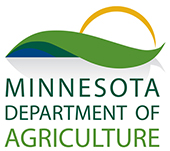Wild Life Management MN | Wild Animal Removal | Wild Animal Disposal
The raccoon’s antics and its appealing face make it a favorite of some and a villain to others–especially to someone whose cornfield has been raided. These excellent climbers and swimmers thrive in almost any environment and eat everything from crayfish to corn–not to mention garbage. Raccoons are most active at night. This prevents many people from witnessing raccoons’ disruptive behaviors.
Identification
General description: Raccoons are the size of a small dog and have heavy fur streaked in brown, black, and gray. They have bushy ringed tails and their paws make hand-like prints in the mud or snow. Their black eye stripes resemble a mask.
Length: 30 to 37 inches, and a 9- to 12-inch tail.
Weight: They average between 15 and 23 pounds or more at maturity.
Color: Mostly brown, black , and gray.
Sounds: Raccoons hiss and growl and screech like an owl.
Reproduction
During the mating season, February to March, the male raccoon travels long distances and mates with many females. After a 63-day gestation period, the female has her litter, which numbers from two to six young. They find shelter in either hollow trees or dens (woodchuck burrows, culverts, under buildings). Once they reach four to six months old, raccoons live on their own.
Food
Sweet corn is a favorite food, though crayfish, frogs, insects, fruits, and bird eggs are staples in its diet.
Predators
Coyotes, foxes, great horned owls, bobcats, and dogs all kill raccoons.
Habitat and range
The raccoon occurs throughout the state, except in the three northeast counties. Their habitat includes prairies, woodlands and cities.
Population and management
The DNR estimates that 800,000 to one million raccoons live throughout the state. Each year Minnesota hunters harvest 100,000 to 150,000 raccoons and trappers take another 75,000 to 100,000.
Fun facts
A raccoon is a powerful fighter that can kill an attacking dog twice its weight.
Raccoons remain in partial hibernation during most of the winter. The animals often den together in small groups. One woman found 23 raccoons sharing an abandoned house. Some raccoons may winter in wood duck boxes if the entrance hole is large enough to squeeze through.
Diseases-Safety
 Raccoons are increasingly very comfortable around people making them an active vector of disease transmission to humans. Not this raccoon near door acting relatively tame.
Raccoons are increasingly very comfortable around people making them an active vector of disease transmission to humans. Not this raccoon near door acting relatively tame.- Raccoons are susceptible to rabies & distemper.
- Raccoons are a major carrier of a deadly roundworm parasite called Baylisascaris procyonis.
According to a 2003 Purdue University newsletter: “There has been an increased number of rabies cases in domestic animals in the northeast due to raccoon rabies. Therefore, rabid raccoons could potentially lead to human exposure through rabid domestic animals.
“In 2003, the Centers for Disease Control & Prevention confirmed the first human death associated with Raccoon Rabies.
The best prevention advice is to stay away from wild animals, live or dead, and call a Minnesota Wild Animal Removal Expert immediately. If your pet is acting ill or strange, contact your veterinarian immediately.
Remember, raccoons are intelligent and clever animals. They are also powerful and can be vicious when trapped or cornered.
Remove Raccoons From Your House or Property
For the average homeowner, unfamiliar with trapping raccoons, it is advisable to hire a professional wild animal control expert to remove the animal. The professional will have the proper equipment to accomplish the task and will be able to tell if a trapped female is nursing its young. This is very important because you don’t want to leave young behind to starve.
The professional will also have the means to euthanize the animals, since releasing them elsewhere is prohibited by law. Released animals may return or present a problem to someone else and, in fact, the animal you have trapped may have been deliberately released near you. Release of animals is a major factor in the dissemination of numerous diseases to other animals.
Got a Raccoon Problem? Safely Remove Raccoons from your Minnesota home. We Humanely Remove Raccoons from your House or Property.
Source: Minnesota DNR





